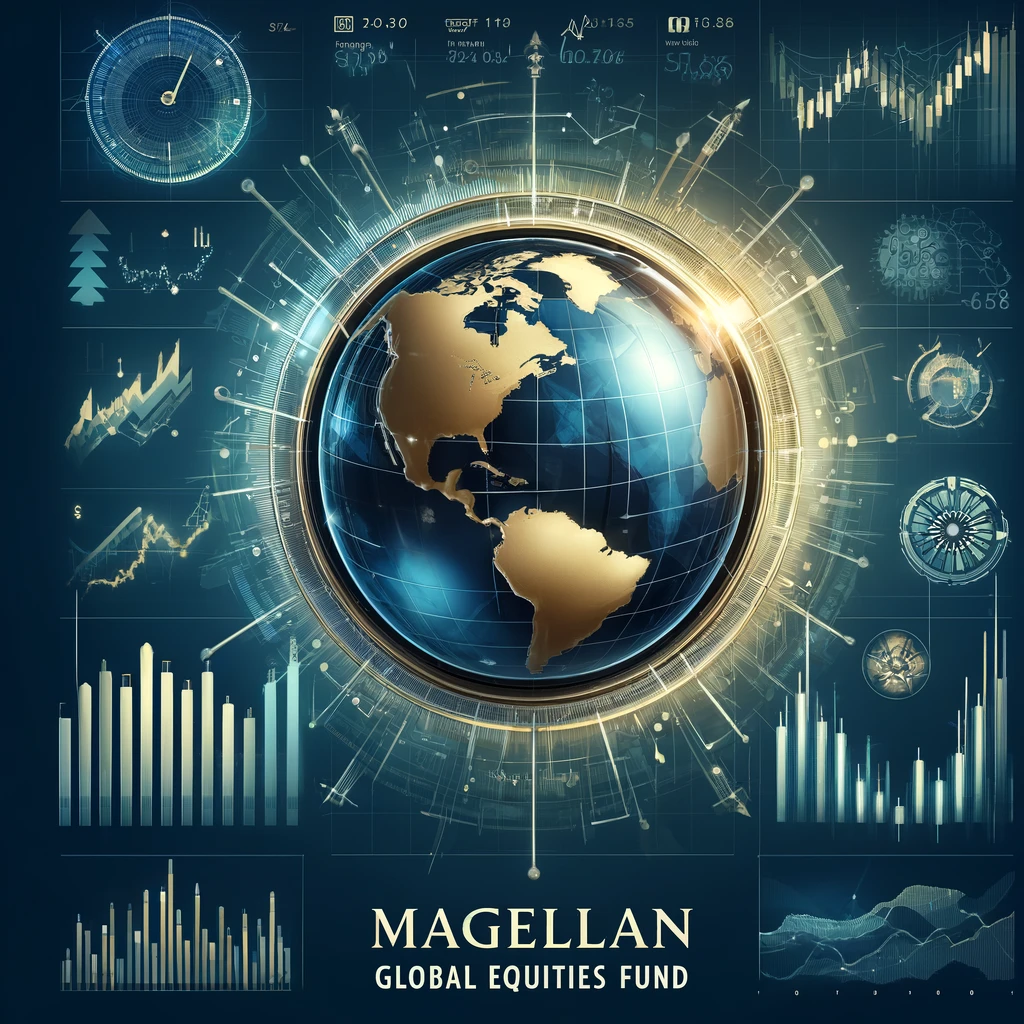Business
Capital One Bank Settlement 2024: What You Need to Know

The Capital One Bank Settlement 2024 has become a significant talking point, capturing the attention of consumers, legal experts, and financial institutions alike. This settlement addresses legal disputes stemming from data breaches and other alleged misconduct, underlining the growing demand for corporate accountability in the digital age.
As financial institutions handle sensitive information and large sums of money, incidents like data breaches can have far-reaching consequences. The Capital One settlement not only provides compensation to affected individuals but also pushes for stronger security measures to prevent future issues. This article unpacks the key details of the settlement, its implications, and how it impacts customers.
Understanding the Capital One Bank Settlement
The Capital One Bank Settlement 2024 arose from a class-action lawsuit involving allegations of data security lapses and financial misconduct. Millions of customers were affected by these incidents, with their sensitive data potentially exposed or mismanaged. The settlement represents an effort to resolve these issues by compensating affected parties and implementing safeguards to prevent future breaches.
The Legal Context
This case highlights the responsibilities of financial institutions in protecting customer data and adhering to regulatory standards. Customers entrust banks like Capital One with critical personal and financial information, and breaches of this trust can lead to legal action.
The 2024 settlement includes provisions for compensation to affected customers, alongside requirements for Capital One to strengthen its cybersecurity infrastructure and compliance protocols.
Key Incidents Leading to the Settlement
- Data Breaches: The unauthorized access of sensitive customer data, including Social Security numbers, credit card information, and financial records.
- Compliance Violations: Alleged lapses in adhering to industry regulations and best practices.
Who is Affected by the Settlement?
The Capital One Bank Settlement impacts millions of customers whose data was compromised or mishandled. This includes:
- Individuals who had accounts or applied for financial products during the specified time frames.
- Customers whose sensitive information, such as Social Security numbers or bank account details, was exposed.
Compensation and Benefits
One of the primary goals of the Capital One Bank Settlement 2024 is to provide monetary compensation to affected customers. Here’s how the settlement benefits claimants:
Financial Compensation
Eligible individuals may receive payments as part of the settlement. The amount varies depending on the extent of the harm suffered, such as unauthorized charges, identity theft, or other financial losses.
Free Credit Monitoring
To mitigate future risks, the settlement often includes free access to credit monitoring services, helping customers keep track of potential fraudulent activities.
System Improvements
Capital One is required to enhance its data security and compliance measures, ensuring customers benefit from a safer banking experience moving forward.
Filing a Claim
If you believe you are eligible for compensation under the Capital One Bank Settlement 2024, the claims process typically involves these steps:
- Verify Eligibility: Confirm that you were a customer during the specified time frame and affected by the incidents in question.
- Submit Documentation: Provide evidence such as account statements, notifications from Capital One, or proof of financial loss.
- File a Claim: Complete and submit the claim form through the official settlement website or other designated channels.
Deadlines for filing claims are strictly enforced, so it’s important to act promptly if you qualify.
The Broader Implications of the Settlement
The Capital One Bank Settlement 2024 is not just about compensation—it’s a wake-up call for financial institutions and consumers alike.
Corporate Accountability
This settlement underscores the importance of holding corporations accountable for safeguarding customer data. It sends a message that lapses in security and compliance will have legal and financial consequences.
Consumer Awareness
For customers, this case highlights the importance of vigilance in monitoring personal and financial information. Proactive steps, such as credit monitoring and using secure banking practices, can help mitigate risks.
Industry-Wide Impact
The settlement sets a precedent for other financial institutions, encouraging them to prioritize cybersecurity and regulatory compliance to avoid similar lawsuits.
Strengthening Data Security in Banking
As technology continues to evolve, so do the methods used by cybercriminals. The Capital One settlement pushes the bank to implement stronger security measures, such as:
- Enhanced Encryption: Protecting customer data with robust encryption techniques.
- Regular Audits: Conducting frequent assessments of cybersecurity systems and protocols.
- Employee Training: Ensuring staff are well-trained in identifying and responding to potential security threats.
How Customers Can Protect Themselves
While financial institutions have a responsibility to safeguard data, customers can also take steps to protect themselves:
- Monitor Accounts: Regularly review bank and credit card statements for unauthorized transactions.
- Use Strong Passwords: Create unique passwords for online banking and update them frequently.
- Enable Alerts: Set up account alerts to receive notifications about suspicious activity.
What the Settlement Means for Capital One
For Capital One, the settlement represents an opportunity to rebuild trust with its customers. By addressing the issues that led to the lawsuit and committing to improved security measures, the bank can demonstrate its dedication to protecting customer interests.
Conclusion
The Capital One Bank Settlement 2024 is a landmark resolution that reflects the growing importance of cybersecurity and accountability in the financial sector. For affected customers, it offers a chance for compensation and reassurance that steps are being taken to prevent future breaches.
This settlement also serves as a reminder for financial institutions to prioritize the safety and privacy of their customers. By doing so, they not only avoid legal repercussions but also strengthen their reputation in an increasingly security-conscious world.
FAQs
What is the Capital One Bank Settlement 2024?
It’s a legal resolution involving compensation for customers affected by data breaches and other alleged misconduct.
Who is eligible for the settlement?
Customers whose data was compromised or mishandled during specified time frames are eligible.
What benefits does the settlement provide?
Compensation, free credit monitoring, and improved data security measures are included.
How can I file a claim?
Eligible individuals can submit a claim form with supporting documentation through the official settlement website.
What is the deadline for filing claims?
Deadlines vary; check the official settlement notice for specific dates.
How does the settlement impact Capital One?
It requires Capital One to compensate customers and strengthen its cybersecurity systems.
What steps can customers take to protect their data?
Monitor accounts, use strong passwords, and set up security alerts to stay vigilant.
Why is this settlement significant?
It emphasizes corporate accountability and sets a precedent for stronger data security in banking.
Does the settlement include free credit monitoring?
Yes, eligible customers often receive access to credit monitoring services.
What are the broader implications of the settlement?
The case highlights the importance of data security, corporate accountability, and consumer protection in the financial industry.
Business
Magellan Global Equities Fund: A Comprehensive Guide to Global Investing

The world of investing offers a vast array of opportunities, but few are as intriguing and potentially rewarding as the Magellan Global Equities Fund. Managed by the esteemed Magellan Asset Management, this fund provides investors with a chance to gain exposure to a diverse portfolio of international stocks, aiming for substantial capital growth over the long term. With the financial landscape continuously evolving, understanding the intricacies of such a fund is essential for investors seeking to expand their horizons and optimize their portfolios. In this article, we’ll explore the Magellan Global Equities Fund, its unique features, and why it might be a valuable addition to your investment strategy.
Understanding the Magellan Global Equities Fund
An Overview of Magellan Asset Management
Magellan Asset Management is a globally recognized investment firm based in Australia, known for its expertise in managing funds that focus on high-quality, global equities. With a strong reputation for delivering impressive returns and managing risk effectively, Magellan has become a trusted name among investors seeking international exposure.
The firm’s investment philosophy revolves around identifying exceptional companies with sustainable competitive advantages and a proven track record of growth. This approach aims to provide investors with both stability and the potential for significant returns.
What is the Magellan Global Equities Fund?
The Magellan Global Equities Fund is a meticulously curated investment option designed to offer investors access to a diversified portfolio of international stocks. The fund targets companies that exhibit strong financial health, robust business models, and a capacity for long-term growth.
The primary objective of the fund is to achieve long-term capital appreciation by investing in companies that are leaders in their respective industries. By doing so, the fund seeks to capitalize on global economic trends and opportunities, providing investors with a chance to benefit from the growth of top-tier international companies.
Investment Strategy and Approach
The Magellan Global Equities Fund follows a disciplined and research-driven investment strategy. The fund’s management team conducts in-depth analyses of companies, evaluating factors such as competitive positioning, financial stability, and management quality. This thorough evaluation process helps the team identify companies with the potential to outperform the market over the long term.
The fund typically invests in a concentrated portfolio of 20 to 40 global stocks. This focused approach allows the management team to allocate capital to their highest-conviction ideas, enhancing the fund’s potential for attractive risk-adjusted returns.
Currency Hedging: A Unique Feature
One of the distinctive features of the Magellan Global Equities Fund is its currency hedging strategy. Given the fund’s global exposure, currency fluctuations can significantly impact returns. To mitigate this risk, the fund employs a currency hedging strategy that seeks to protect investors from adverse currency movements. This approach provides investors with a more predictable and stable return profile, regardless of currency fluctuations in the global markets.
Key Benefits of Investing in the Magellan Global Equities Fund
Diversification Across Global Markets
One of the primary benefits of investing in the Magellan Global Equities Fund is the opportunity for diversification across various global markets. By investing in international stocks, investors can spread their risk and reduce the impact of local economic fluctuations on their portfolios. This diversification helps cushion against market volatility and enhances the potential for consistent returns.
Access to High-Quality Companies
The Magellan Global Equities Fund focuses on high-quality companies with strong competitive advantages. These companies often have a history of delivering consistent earnings growth, robust cash flow generation, and strong market positions. By investing in such companies, the fund aims to provide investors with exposure to businesses that are well-positioned to thrive in various economic environments.
Active Management for Optimal Returns
The fund is actively managed by a team of experienced professionals who continuously monitor global markets and adjust the portfolio as needed. This active management approach allows the fund to capitalize on emerging opportunities and mitigate potential risks, ultimately striving to achieve optimal returns for investors.
Currency Hedging for Stability
The currency hedging strategy employed by the fund adds an extra layer of stability to the investment. By mitigating the impact of currency fluctuations, the fund provides investors with more predictable returns and reduces the risk associated with global investments.
Understanding the Structure of the Magellan Global Equities Fund
Active Exchange-Traded Fund (ETF) Structure
The Magellan Global Equities Fund is structured as an Active Exchange-Traded Fund (ETF), providing investors with the benefits of both traditional mutual funds and exchange-traded funds. This structure offers several advantages, including:
- Liquidity: Active ETFs are traded on stock exchanges, allowing investors to buy and sell shares throughout the trading day at market prices. This liquidity provides investors with flexibility and ease of access to their investments.
- Transparency: Active ETFs typically disclose their holdings on a daily basis, offering investors greater transparency into the underlying assets. This transparency allows investors to make informed decisions and assess the fund’s alignment with their investment goals.
- Cost-Effectiveness: Active ETFs often have lower expense ratios compared to traditional mutual funds. This cost-effectiveness is due to the efficient structure of ETFs, which minimizes management fees and operational costs.
Portfolio Composition
The portfolio composition of the Magellan Global Equities Fund reflects the fund’s commitment to investing in high-quality global stocks. The fund’s management team carefully selects a concentrated portfolio of 20 to 40 companies, each chosen for its potential to deliver superior returns over the long term.
The portfolio is diversified across various sectors and regions, with a focus on industries that exhibit strong growth potential. This sectoral and geographical diversification further enhances the fund’s risk-adjusted returns and reduces exposure to any single economic event or market trend.
Investment Process
The investment process of the Magellan Global Equities Fund is characterized by rigorous research and analysis. The management team follows a systematic approach to identify and evaluate investment opportunities, considering factors such as:
- Competitive Position: The team assesses a company’s competitive positioning within its industry, including its market share, brand strength, and barriers to entry. Companies with sustainable competitive advantages are prioritized for investment.
- Financial Health: The fund evaluates a company’s financial health, focusing on metrics such as revenue growth, profit margins, and cash flow generation. Companies with strong financial profiles are considered attractive investment candidates.
- Management Quality: The management team’s assessment of a company’s leadership and governance is a critical component of the investment process. Companies with experienced and capable management teams are preferred, as effective leadership is often a key driver of long-term success.
The Role of Arvid Streimann and Nikki Thomas in Fund Management
Leadership and Expertise
The Magellan Global Equities Fund is managed by two accomplished investment professionals: Arvid Streimann and Nikki Thomas. Both individuals bring a wealth of experience and expertise to the fund’s management, ensuring that investment decisions are well-informed and aligned with the fund’s objectives.
Arvid Streimann, CFA
Arvid Streimann is a Chartered Financial Analyst (CFA) and a seasoned investment manager with a deep understanding of global markets. His extensive experience in equity research and portfolio management has been instrumental in shaping the fund’s investment strategy.
Streimann’s approach to investing is characterized by a keen focus on identifying high-quality companies with sustainable competitive advantages. His ability to navigate complex market dynamics and identify emerging trends has contributed to the fund’s success in delivering attractive risk-adjusted returns.
Nikki Thomas, CFA
Nikki Thomas is also a Chartered Financial Analyst (CFA) and a highly regarded investment professional with a proven track record of managing global equity portfolios. Her expertise in financial analysis and risk management has been pivotal in guiding the fund’s investment decisions.
Thomas’s investment philosophy emphasizes a disciplined approach to selecting companies with strong fundamentals and growth potential. Her commitment to rigorous research and thorough due diligence ensures that the fund maintains a well-balanced and diversified portfolio.
Collaborative Decision-Making
The collaborative partnership between Streimann and Thomas is a cornerstone of the fund’s management approach. Their complementary skill sets and shared commitment to excellence foster a dynamic investment process that leverages their collective insights and expertise.
Through regular discussions and comprehensive analyses, Streimann and Thomas work together to identify investment opportunities that align with the fund’s objectives. This collaborative decision-making process enhances the fund’s ability to adapt to changing market conditions and capitalize on emerging trends.
Evaluating the Performance of the Magellan Global Equities Fund
Historical Performance
The historical performance of the Magellan Global Equities Fund is a testament to its effectiveness in achieving its investment objectives. Over the years, the fund has delivered impressive returns, consistently outperforming relevant benchmarks and providing investors with attractive capital growth.
Factors Contributing to Performance
Several factors have contributed to the fund’s strong performance:
- Stock Selection: The fund’s disciplined stock selection process, driven by thorough research and analysis, has resulted in the identification of high-quality companies with strong growth potential. This approach has been instrumental in delivering consistent returns.
- Sector and Geographic Diversification: The fund’s diversified portfolio across various sectors and regions has mitigated risk and enhanced its ability to capture opportunities in different market environments. This diversification has been a key driver of the fund’s performance.
- Active Management: The active management approach employed by Streimann and Thomas has enabled the fund to respond effectively to market dynamics and capitalize on emerging trends. This proactive management has contributed to the fund’s ability to outperform its peers.
Risk Management and Volatility
While the Magellan Global Equities Fund has demonstrated strong performance, it is essential to consider the associated risks and potential for volatility. As with any investment in global equities, the fund is subject to market fluctuations and economic uncertainties.
The fund’s management team employs a comprehensive risk management framework to mitigate these risks and enhance the fund’s stability. This framework includes diversification, currency hedging, and rigorous monitoring of market conditions.
Investors should be aware that while the fund aims to achieve long-term capital growth, short-term market volatility may impact returns. A well-informed investment strategy that considers both potential rewards and risks is crucial for successful participation in the fund.
How to Invest in the Magellan Global Equities Fund
Accessing the Fund
Investing in the Magellan Global Equities Fund is a straightforward process that can be done through various investment platforms and brokerage accounts. As an Active ETF, the fund is listed on the Australian Securities Exchange (ASX), allowing investors to buy and sell shares with ease.
Steps to Invest
- Research and Due Diligence: Before investing, conduct thorough research to understand the fund’s objectives, strategy, and historical performance. Evaluate whether the fund aligns with your investment goals and risk tolerance.
- Open a Brokerage Account: To access the fund, you will need a brokerage account that provides access to ASX-listed securities. Choose a reputable brokerage platform that offers competitive fees and user-friendly features.
- Place an Order: Once your brokerage account is set up, you can place an order to buy shares of the Magellan Global Equities Fund. Specify the number of shares you wish to purchase and execute the trade at market prices.
- Monitor Your Investment: After investing, regularly monitor the fund’s performance and stay informed about market developments. Consider adjusting your investment strategy as needed to align with changing market conditions.
Investment Considerations
When investing in the Magellan Global Equities Fund, consider the following factors:
- Investment Horizon: The fund is designed for medium to long-term investors seeking capital growth. Assess your investment horizon to ensure it aligns with the fund’s objectives.
- Risk Tolerance: Global equities can beS subject to market volatility. Evaluate your risk tolerance and determine whether the fund’s risk profile aligns with your comfort level.
- Diversification: Consider the fund’s role within your broader investment portfolio. Diversification across asset classes and regions can enhance your overall risk-adjusted returns.
Conclusion
The Magellan Global Equities Fund is a compelling investment option for those seeking exposure to a diversified portfolio of high-quality international stocks. Managed by the esteemed team at Magellan Asset Management, the fund offers a unique blend of active management, currency hedging, and a disciplined investment approach.
By investing in the Magellan Global Equities Fund, investors can access a carefully curated selection of companies that are leaders in their industries, poised for long-term growth and success. The fund’s commitment to delivering attractive risk-adjusted returns makes it a valuable addition to any investment strategy.
As you embark on your investment journey, consider the opportunities and potential rewards that the Magellan Global Equities Fund offers. With a focus on global excellence and a commitment to achieving sustainable growth, this fund stands as a testament to the power of international investing.
Business
Fintechzoom SQ Stock: An In-Depth Analysis of Square Inc.’s Investment Potential

The world of investing is ever-changing, and keeping up with the latest trends and opportunities is crucial for investors looking to maximize their portfolios. One of the most intriguing stocks on the market today is SQ stock, which belongs to Square Inc., now known as Block Inc. With its rapid growth, robust revenue streams, and cutting-edge technology, SQ stock has captured the attention of investors worldwide. In this article, we will delve into what makes SQ stock stand out, the role of Fintechzoom in providing insights, and why experts are keeping a close eye on its potential for both short-term and long-term gains.
Square Inc. (Block Inc.): What is it
Square Inc., rebranded as Block Inc., is a technology company revolutionizing how businesses and individuals handle financial transactions. Founded in 2009 by Jack Dorsey and Jim McKelvey, the company initially focused on providing a simple payment solution for small businesses. However, over the years, Square has expanded its offerings to include a wide range of services, such as point-of-sale solutions, business loans, and peer-to-peer payment systems.
The Birth of Square Inc.
Square Inc. was born out of the necessity to provide small businesses with a more accessible way to accept credit card payments. Traditional payment processing methods were expensive and cumbersome, creating barriers for smaller merchants. By introducing a compact card reader that connected to smartphones, Square made it possible for anyone to process transactions effortlessly. This innovation laid the foundation for the company’s rapid growth and success.
The Rebranding to Block Inc.
In 2021, Square Inc. announced a significant rebranding effort, adopting the name Block Inc. This change reflects the company’s expansion beyond its original focus on payments to include various technology-driven solutions, such as blockchain and digital assets. The rebranding signifies a broader vision for the future and positions the company to explore new avenues of growth.
The Rise of SQ Stock
SQ stock has garnered considerable attention due to its impressive performance in the stock market. The company’s innovative approach and commitment to delivering value have translated into remarkable financial results, making SQ stock a desirable investment option for many.
Massive Growth in Revenue
One of the key factors contributing to SQ stock’s success is its substantial revenue growth. The company’s ability to generate consistent revenue from various sources has solidified its position in the market. A significant portion of this revenue comes from Cash App, a peer-to-peer payment platform that has become a cornerstone of Square’s business.
Cash App: A Revenue Powerhouse
Cash App, launched in 2013, has quickly evolved into a vital component of Square’s financial ecosystem. Initially designed as a simple way to send and receive money, the platform has grown to offer a range of features, including direct deposits, stock trading, and Bitcoin transactions. Cash App’s popularity and versatility have contributed significantly to Square’s revenue stream, driving its stock prices upward.
The Peak of Stock Market Volatility
The volatility of SQ stock reached its zenith in 2021 when its share price peaked at an impressive $275. This remarkable surge reflects investors’ confidence in Square’s business model and growth potential. However, it’s important to note that stock market fluctuations are a natural part of investing, and understanding the factors influencing these changes is crucial for making informed decisions.
Analyzing SQ Stock with Fintechzoom
Fintechzoom is a leading platform that offers comprehensive analysis and insights into the stock market, making it an invaluable resource for investors interested in SQ stock. With a wealth of data and expert opinions, Fintechzoom provides a detailed look at the factors driving SQ stock’s performance and potential investment opportunities.
Understanding Market Trends
One of Fintechzoom’s primary advantages is its ability to track and analyze market trends. By providing real-time data on stock prices, trading volumes, and market sentiment, the platform empowers investors to make well-informed decisions. Fintechzoom’s analysis of SQ stock highlights its growth trajectory and potential for future gains.
Expert Opinions and Ratings
Fintechzoom’s expert analysts play a pivotal role in evaluating SQ stock’s performance and outlook. Their comprehensive assessments consider various factors, including financial metrics, industry trends, and market dynamics. Based on these evaluations, SQ stock is often rated as “A Moderate Buy,” indicating its potential for growth and profitability.
Why SQ Stock is a Promising Investment
SQ stock’s appeal lies in its combination of robust growth, technological innovation, and a diversified revenue stream. These factors contribute to its potential as a promising investment opportunity for both short-term and long-term investors.
Increasing Profit Margins
Square Inc.’s ability to consistently increase its profit margins is a testament to its efficient business operations and strategic decision-making. By optimizing its processes and capitalizing on emerging opportunities, the company has created a strong foundation for sustained growth. This financial prowess is a key factor that attracts investors to SQ stock.
Meeting Customer Demand
The demand for Square’s products and services continues to rise, driven by the company’s focus on addressing the evolving needs of businesses and consumers. From seamless payment solutions to innovative financial products, Square’s offerings resonate with a diverse range of customers. This customer-centric approach positions SQ stock for continued success in a competitive market.
Short-Term and Long-Term Investment Opportunities
SQ stock’s versatility makes it an attractive option for both short-term and long-term investors. For those seeking quick gains, the stock’s volatility offers opportunities for strategic trades. On the other hand, long-term investors can benefit from Square’s consistent growth and commitment to innovation, which bode well for future returns.
Overcoming Challenges and Risks
While SQ stock offers significant potential, it’s essential to acknowledge and address the challenges and risks associated with trading. Understanding these factors is crucial for making informed investment decisions and managing expectations.
Navigating Stock Market Volatility
The stock market is inherently volatile, and SQ stock is no exception. Fluctuations in share prices can be influenced by various factors, including economic conditions, industry trends, and company performance. Investors must be prepared to navigate this volatility and develop strategies to mitigate potential risks.
Adapting to Regulatory Changes
As a technology-driven company operating in the financial sector, Square Inc. is subject to regulatory oversight. Changes in regulations or compliance requirements can impact the company’s operations and financial performance. Staying informed about regulatory developments and their potential implications is vital for investors.
Competition and Market Dynamics
The financial technology industry is highly competitive, with numerous players vying for market share. Square Inc. faces competition from both established companies and emerging startups. Understanding the competitive landscape and monitoring market dynamics is essential for assessing SQ stock’s long-term viability.
Fintechzoom SQ Stock Analysis: A Valuable Resource
Fintechzoom’s analysis of SQ stock provides valuable insights for investors looking to make informed decisions. The platform offers a range of tools and resources that empower investors to stay ahead of market trends and capitalize on opportunities.
Real-Time Data and Analytics
Fintechzoom’s real-time data and analytics allow investors to monitor SQ stock’s performance closely. By tracking stock prices, trading volumes, and market sentiment, investors can make timely decisions that align with their investment goals. The platform’s user-friendly interface makes it easy to access and interpret critical information.
Comprehensive Financial Metrics
Fintechzoom provides a wealth of financial metrics that offer a deeper understanding of SQ stock’s performance. From earnings reports to revenue growth, these metrics provide valuable insights into the company’s financial health and prospects. Investors can use this information to evaluate SQ stock’s potential for long-term growth.
Market News and Updates
Staying informed about market news and updates is crucial for making sound investment decisions. Fintechzoom’s comprehensive coverage of market trends, industry developments, and economic factors ensures that investors have access to the latest information. By staying informed, investors can make proactive decisions that align with their investment strategies.
Expert Insights on SQ Stock
Fintechzoom’s expert analysts offer valuable insights into SQ stock’s performance and potential. Their assessments are based on a thorough analysis of financial data, market trends, and industry dynamics. These expert opinions provide investors with a well-rounded perspective on SQ stock’s investment potential.
Analyzing Financial Performance
Fintechzoom’s analysts closely examine SQ stock’s financial performance, evaluating key metrics such as revenue growth, profit margins, and earnings per share. By understanding the company’s financial health, investors can make informed decisions about the stock’s potential for growth and profitability.
Assessing Market Trends
Market trends play a significant role in influencing SQ stock’s performance. Fintechzoom’s analysts consider industry trends, consumer behavior, and technological advancements when evaluating SQ stock’s outlook. This comprehensive analysis helps investors understand how external factors may impact their investment decisions.
Providing Investment Recommendations
Based on their analysis, Fintechzoom’s analysts provide investment recommendations that guide investors in making strategic decisions. SQ stock is often rated as “A Moderate Buy,” reflecting its potential for growth and profitability. Investors can use these recommendations to align their investment strategies with their risk tolerance and financial goals.
The Future of SQ Stock
The future of SQ stock holds promise as Square Inc. continues to innovate and expand its offerings. Several key factors contribute to the stock’s potential for sustained growth and success.
Embracing Technological Innovation
Square Inc.’s commitment to technological innovation positions SQ stock for continued growth. The company’s exploration of emerging technologies, such as blockchain and digital assets, opens new avenues for revenue generation and market expansion. This forward-thinking approach ensures that Square remains at the forefront of the financial technology industry.
Expanding Global Presence
Square Inc.’s expansion into international markets presents significant growth opportunities for SQ stock. By entering new markets and adapting its offerings to meet local needs, the company can tap into a broader customer base and drive revenue growth. This global expansion strategy enhances SQ stock’s long-term investment potential.
Enhancing Customer Experience
Square Inc.’s focus on enhancing customer experience is a driving force behind its success. By continuously improving its products and services, the company builds strong customer loyalty and attracts new users. This customer-centric approach strengthens SQ stock’s position in the market and contributes to its growth prospects.
Conclusion
Fintechzoom SQ stock represents a compelling investment opportunity that captures the attention of investors seeking growth and innovation. With its impressive revenue growth, technological advancements, and diverse revenue streams, Square Inc. has established itself as a leader in the financial technology industry. Fintechzoom’s analysis provides valuable insights that empower investors to make informed decisions and navigate the complexities of the stock market.
Whether you’re a short-term trader looking for strategic opportunities or a long-term investor seeking sustained growth, Fintechzoom SQ stock offers a promising path to achieving your financial goals. By staying informed, understanding market trends, and leveraging expert insights, investors can position themselves for success in the dynamic world of stock investing.
Business
DFNS.com Mail: Revolutionizing Sustainable Care for Your Gear

In a world where sustainability is more critical than ever, the choices we make regarding the products we use can have a significant impact on the environment. Enter DFNS.com, a brand that stands at the forefront of sustainable care solutions. Known for its innovative products designed to clean, refresh, and protect your gear, DFNS.com is making it easier for consumers to reduce their environmental footprint while maintaining their favorite items. The DFNS.com mail service is an integral part of this mission, connecting customers with solutions that extend the life of their clothing and footwear, all while being eco-friendly.
This article explores the range of services and products offered by DFNS.com, focusing on how they help you care for your gear in a way that is both effective and kind to the planet. Whether you’re passionate about sustainability or simply looking for practical ways to protect your wardrobe, DFNS.com has a solution for you.
What Is DFNS.com?
DFNS.com is a forward-thinking company dedicated to creating sustainable care products for clothing, footwear, and gear. Their mission is simple: to make sustainable care the easy and obvious choice for consumers. By offering products that not only perform exceptionally well but also minimize environmental harm, DFNS.com empowers people to take control of their wardrobe’s environmental impact.
With the rise of fast fashion and the increasing awareness of its environmental consequences, more people are looking for ways to maintain their clothing and gear longer. DFNS.com fills this need by providing eco-friendly care products that clean, protect, and prolong the life of your items, ensuring they last longer and reduce waste.
DFNS.com Mail: A Game-Changer in Gear Care
One of the standout services offered by DFNS is their mail-in care service. Through DFNS.com mail, customers can send in their gear—whether it’s shoes, jackets, or backpacks—for professional cleaning and care. This service is not only convenient but also ensures that your items are treated with DFNS’s eco-friendly products, keeping your gear in top condition without harming the planet.
How DFNS.com Mail Works
The process of using DFNS.com mail is straightforward and designed with convenience in mind:
- Select Your Service: Whether you need deep cleaning, refreshing, or protection for your gear, you can choose the service that fits your needs from the DFNS.com website.
- Mail-In Your Gear: Once you’ve selected the service, you’ll receive instructions on how to mail in your items. DFNS.com provides eco-friendly packaging to ensure your gear is shipped securely and sustainably.
- Care and Cleaning: Once received, the DFNS.com team uses their proprietary, eco-friendly solutions to clean, refresh, and protect your gear. Their products are designed to work without harmful chemicals, ensuring your items look great while minimizing their environmental impact.
- Receive Your Refreshed Gear: After treatment, your items are shipped back to you, ready for continued use. Thanks to DFNS’s high-performance products, your gear will look refreshed and protected from the elements.
This mail-in service is ideal for those who want professional care for their high-quality items but are also concerned about the environmental impact of traditional cleaning methods.
Sustainable Products for Everyday Care
DFNS.com isn’t just about mail-in services—they also offer a comprehensive range of products that make it easy for you to care for your gear at home. From cleaning sprays to protective coatings, each product is designed with sustainability in mind, helping you prolong the life of your items while reducing your carbon footprint.
1. DFNS Footwear Protection
For sneaker enthusiasts and outdoor adventurers alike, DFNS’s Footwear Protection products are a must. These eco-friendly sprays form a protective barrier around your shoes, shielding them from dirt, water, and stains without using harmful chemicals. Whether you’re looking to protect your new kicks or extend the life of your hiking boots, DFNS Footwear Protection provides long-lasting care.
2. DFNS Apparel Cleaners
Keeping your clothes looking fresh while being gentle on the environment is possible with DFNS’s Apparel Cleaners. These sprays are formulated to lift dirt and stains from your clothing without the need for aggressive, chemical-heavy products. Designed to work on a variety of fabrics, DFNS Apparel Cleaners ensure that your favorite outfits last longer, reducing the need for constant replacements.
3. Refreshing Sprays for Odor Control
Sometimes, your gear doesn’t need a full wash—just a quick refresh. DFNS’s Refreshing Sprays are perfect for neutralizing odors and keeping your items smelling fresh between washes. These sprays use natural ingredients to eliminate bad smells, making them ideal for everything from sneakers to gym bags.
4. Waterproofing and Protective Coatings
For those who spend a lot of time outdoors, DFNS offers waterproofing and protective coatings that help shield your gear from the elements. Whether it’s rain, snow, or mud, these coatings ensure your items stay dry and clean, allowing you to enjoy your outdoor adventures without worrying about damage to your gear.
Why Choose DFNS.com?
There are many reasons why DFNS.com has become a trusted name in sustainable care solutions. Here’s why more people are choosing DFNS to protect and maintain their gear:
1. Eco-Friendly Formulations
DFNS.com products are designed with the environment in mind. By using water-based, non-toxic formulas, the brand ensures that their products are effective without contributing to pollution or environmental harm. This makes DFNS an ideal choice for eco-conscious consumers who want to take care of their belongings without causing damage to the planet.
2. Prolonging the Life of Your Gear
One of the main goals of DFNS is to help consumers extend the life of their items. In a world where fast fashion and disposable products are the norm, DFNS is changing the narrative by encouraging people to take care of the items they already own. By regularly cleaning and protecting your gear with DFNS products, you can ensure that your clothing and footwear last longer, reducing the need for constant replacements.
3. Convenient Mail-In Services
For those who prefer professional care, DFNS.com’s mail-in service makes it easy to get high-quality cleaning and protection for your gear. This service is especially useful for individuals with expensive or delicate items that require special care, such as designer shoes, outdoor equipment, or technical jackets.
4. Trusted by Industry Leaders
DFNS.com has earned the trust of industry leaders and innovators who are shaping the future of sustainable fashion and gear care. By partnering with forward-thinking brands and individuals, DFNS is at the forefront of the movement toward more sustainable living. Their commitment to quality and sustainability has made them a go-to choice for those who care about both style and the environment.
DFNS and the Future of Sustainable Care
As awareness around environmental issues continues to grow, more people are looking for ways to reduce their impact on the planet. DFNS.com is leading the charge by offering products that help consumers make more sustainable choices in their everyday lives. By choosing DFNS, you’re not only protecting your gear—you’re also contributing to a more sustainable future.
Innovating for a Better Tomorrow
DFNS.com is committed to continuous innovation, constantly seeking new ways to improve their products and make them even more eco-friendly. From developing new formulas that use less water to finding ways to reduce packaging waste, DFNS is always looking for ways to push the boundaries of sustainable care.
Empowering Consumers
At its core, DFNS’s mission is to empower people to take control of their wardrobe’s environmental impact. By providing easy-to-use, eco-friendly products, DFNS makes it simple for consumers to care for their items in a way that reduces waste and extends their lifespan.
Conclusion
DFNS.com mail and its range of sustainable care products offer a revolutionary way to clean, protect, and refresh your gear. Whether you choose their convenient mail-in service or their eco-friendly sprays and cleaners, DFNS empowers you to make better choices for both your wardrobe and the planet. By choosing DFNS, you’re not only investing in the longevity of your clothing and footwear but also supporting a brand committed to making a positive environmental impact.
As the world moves toward a more sustainable future, DFNS.com stands out as a leader in eco-conscious care, offering solutions that help people maintain their gear while reducing their environmental footprint. Explore DFNS’s products and services today, and discover how easy it can be to protect your gear—and the planet.
FAQs
1. What is DFNS.com mail service?
DFNS.com mail service allows customers to send in their gear for professional cleaning and care using eco-friendly products.
2. Are DFNS products safe for all fabrics?
Yes, DFNS products are designed to be safe for a variety of fabrics, making them suitable for most clothing and footwear.
3. How does DFNS.com contribute to sustainability?
DFNS uses water-based, non-toxic formulations and eco-friendly packaging, reducing the environmental impact of gear care.
4. Can I use DFNS products on outdoor gear?
Yes, DFNS offers specialized waterproofing and protective coatings ideal for outdoor gear like jackets and hiking boots.
5. Is DFNS footwear protection effective on all types of shoes?
Yes, DFNS footwear protection works on a wide range of shoe materials, providing long-lasting protection from dirt and stains.
6. How can I start using DFNS.com mail services?
Visit the DFNS.com website, select the service you need, and follow the instructions to mail in your gear for care.
-

 Education3 months ago
Education3 months agoExamFX: The Ultimate Solution for Licensing Exam Preparation
-

 Technology3 months ago
Technology3 months agoExploring www.bageltechnews.com: Your Ultimate Destination for Technology Insights
-

 Technology4 months ago
Technology4 months agoNumberlina.com Technology: Redefining Digital Experiences
-

 Business4 months ago
Business4 months agoShitcoin Checker: Your Ultimate Tool to Spot Suspicious Crypto Tokens
-

 Technology4 months ago
Technology4 months agoTekGPS: Revolutionizing GPS Tracking Solutions
-

 Food & Drinks4 months ago
Food & Drinks4 months agoÇeciir: A Culinary Gem of Turkish Heritage
-

 General4 months ago
General4 months agoDigitalRGS.org: A Hub for Learning, Research and Growth
-

 Fashion4 months ago
Fashion4 months agoWebfreen.com Fashion: Your Ultimate Destination for Affordable Style
